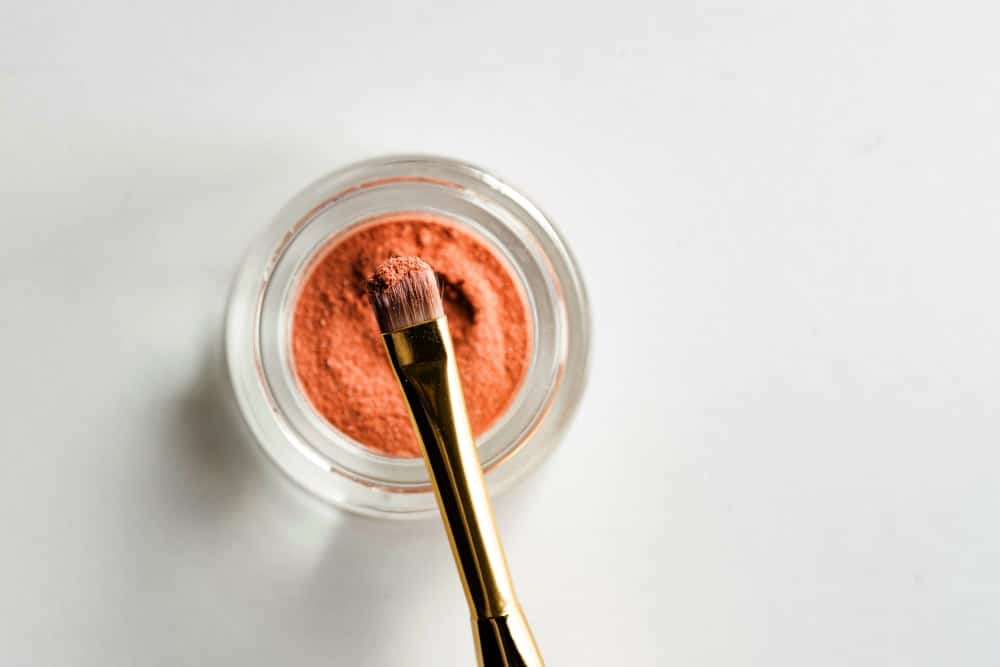Blog
The Ultimate Guide to Retinol: How it Transforms Your Skin And Why it's Safe

By Hanna Oltmanns - November 6, 2023
If you have been diving into the world of skincare, chances are that you have come across the buzz surrounding the highly beneficial ingredient Retinol. It is often viewed as the gold standard of anti-aging skincare, and it is a game changer when it comes to maintaining youthful and radiant skin. With its ability to address a multitude of skin concerns, Retinol has earned its reputation as a “life-changing” skincare component.
However, there are a lot of questions that arise when it comes to the right application, the different forms of this ingredient and even the safety of Retinol. That’s why we have put together an easy-to-understand guide with all that you need to know about anti-aging Retinol and why we at Suntribe have chosen to include it in our brand new Natural Night Cream with Retinol, Hyaluronic Acid and Niacinamide!
What exactly is Retinol?
Retinol is a pre-formed source of Vitamin A, converting to retinoic acid in the skin. From there it makes the skin cells thicker and promotes the renewal of the skin’s surface. Its ability to perform a wide range of skin improving functions is what makes Retinol such a wanted ingredient for anti-aging products in particular, from boosting collagen to aiding with acne, whiteheads and blackheads. It lowers the aging process as it increases the rate at which the epidermal layer turns over and regenerates. Most dermatologists, estheticians, and beauty experts consider Retinol as a must have in everyone’s anti-aging routine. Because of its benefit to reduce the appearance of wrinkles, stimulate the production of collage and help increase the speed of cell turnover, it has earned the number one stand of anti-aging components. It is generally recommended to start using Retinol between the age of 25 and 30 to prevent skin aging and regular use can help maintain a fast replacement cycle of skin cells, keeping you looking youthful.
Retinol is one of many different types of retinoids. Names like Tretinoin and Retinal pop up alongside Retinol when searching for it. However, there is a huge difference between them. Retinol is the natural, much milder and less concentrated version of Retinoids, making it available as an over the counter skin care product and more tolerable with less risk of irritation to most skin types. Tretinoin on the other hand is synthetically produced, and requires a prescription as it is retinoic acid in its active form and carries a high irritation potential. Retinal has a small molecular size and only takes one conversion to become retinoic acid. It is considered the “strongest” of all non-prescription retinoids as it can be irritating especially to people who have never used retinoids before.
Answers to common questions about Retinol
What should I know about using Retinol?
When you are using Retinol as part of your anti-aging skincare routine it is important to include a good quality moisturizer in your daily use. Your skin will need some special care to prevent potential side effects such as dryness and irritation. People with very sensitive skin can start by applying products containing Retinol every other night when first using it. Additionally, you should always choose natural Retinol when it comes to skin and body care. It is a no-brainer that natural components are better for your skin than synthetic ones! Plus, natural Retinol is just as effective, if not more, without any unwanted side effects due to chemicals.
“Give your skin some special care and add a moisturizer to your routine!”
Can Retinol be used with other skincare ingredients?
Products containing Niacinamide alongside Retinol are very beneficial to encourage hydration and an even smoother texture of the skin. Hyaluronic Acid is another very useful component to use additionally. It is one of the most gentle anti-aging skin care ingredients and the body naturally produces it to hydrate itself. Using it in your skin care routine will provide some extra nourishment and hydration to your skin.
“Retinol in combination with other naturally nourishing skin care ingredients can be used worry-free!”
Is it safe for pregnant and nursing women to use Retinol?
Many mothers are concerned when it comes to using certain skin and body care during pregnancy and breastfeeding and that is for a good reason! In this phase of life both the mother and the newborn are particularly vulnerable and you need to know which products are safe to use.
Is it okay to use skin care products containing Retinol during pregnancy and breastfeeding? The answer is Yes and No. It is the type of Retinol that you should be cautious of. You should stay away from any type of synthetically produced retinoids. Any form of it taken orally, or requiring a prescription should never be used during pregnancy or breastfeeding. Natural Retinol on the other hand can be used even by expectant and breastfeeding mothers. 100% natural ingredients are the best choice at any stage of life, but especially during this very sensitive period. Especially if the skin care product only contains a small concentration of natural Retinol and is used in combination with other naturally nourishing ingredients it can be a great option to take care of your skin during pregnancy and breastfeeding.
Since natural skin care including Retinol does not contain man-made synthetic chemicals, they will not harm the infant, neither in the womb nor when nursing. Both Niacinamide, Hyaluronic Acid and natural Retinol are safe to use for expecting and breastfeeding mothers. By combining Retinol with other safe-to-use-skin care ingredients, you will create a glowing, and well-nourished skin barrier. Of course you should always read and double-check the label and reach out to the brand providing the product you intend to use in case you are unsure whether it is 100% safe and worry-free. When in doubt, consult a doctor.
Does Retinol make skin more sun sensitive?
Using Retinol can make your skin more sensitive to sunlight, because the fresh new skin that it encourages to develop is more valuable to UV rays. Products containing Retinol, including our Natural Night Cream, should be applied in the evening, giving your skin plenty of time to absorb it. Even though the Suntribe Natural Night Cream with Retinol does no harm when used during the day, be aware that it is not an SPF product and that you should use an SPF Day Cream on a daily basis. So choose a daily SPF cream that you love and incorporate it into your morning routine!
“Retinol has the potential of making the skin more sun sensitive so use a daily SPF cream that you love!”
How long does it take to see results with Retinol?
Now, let’s note that Retinol has some incredible anti-aging benefits and will help you to create glowing and healthy skin, however you have to have patience! Even though it would be nice, Retinol does not transform your skin overnight. From what is currently known, the fastest you can expect to see a visible reduction in wrinkles is 6 months. The good news are that after three to four weeks you’ll already notice that your pores are less clogged and your skin is cleared up. So even if you do not see the desired change right away, be consistent and keep using Retinol as part of your evening routine!
“When using Retinol you have to have some patience!”
Is natural Retinol automatically vegan?
While Retinol occurs naturally, there are different sources of it reaching from plant-based Retinol to synthetic and animal-based Retinol. When using cosmetic products containing natural Retinol you should always check where the Retinol used in the product comes from. Side effects of vegan Retinol are very rare, while synthetic and animal-based Retinol can be rather harsh to the skin, so you want to be sure what you are applying!
“Not all natural Retinol is automatically vegan.”
Summary of what you need to know about Retinol
- Retinol should be a part of your nighttime routine if you’re looking to unclog your pores and reduce the appearance of fine lines and wrinkles
- Ideally use 100% natural and vegan Retinol as you find in the Suntribe Natural Night Cream, it will be just as effective, if not more, as synthetic alternatives without any unwanted side effects due to chemicals
- When using Retinol, give your skin some special care and use an additional moisturizer or a product containing nourishing components alongside Retinol
- 100% natural Retinol in low concentrations is safe to use for pregnant and breastfeeding mothers
- Retinol has the potential of making the skin more sun sensitive so use a daily SPF sunscreen that you love
- When using Retinol you have to have some patience, it can take a few months until the results become visible
Medical Disclaimer:
This article is intended for information and education purposes only. It is not intended to provide medical advice or take the place of such from a personal physician. All readers of this article or advised to consult their doctors regarding specific health questions. The publisher of this content does not take responsibility for possible health consequences of any person following the information above.










